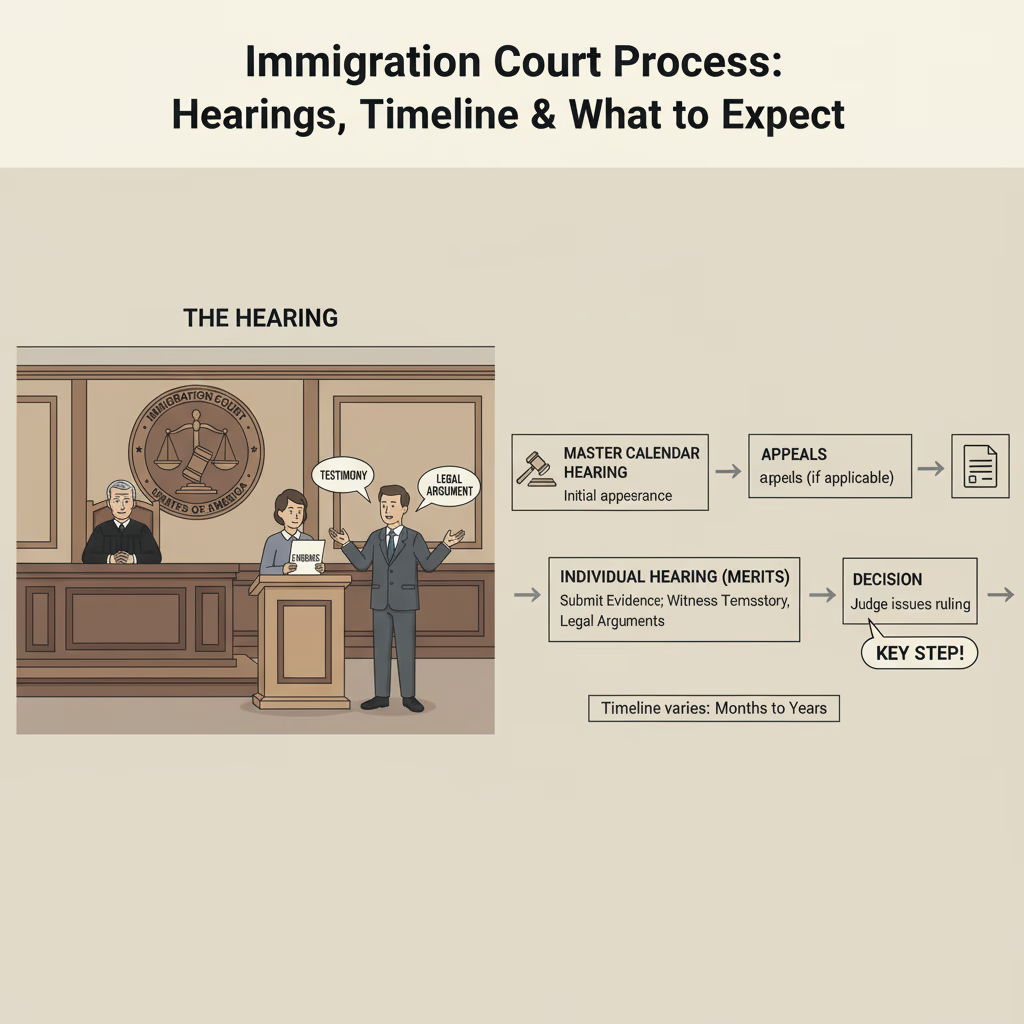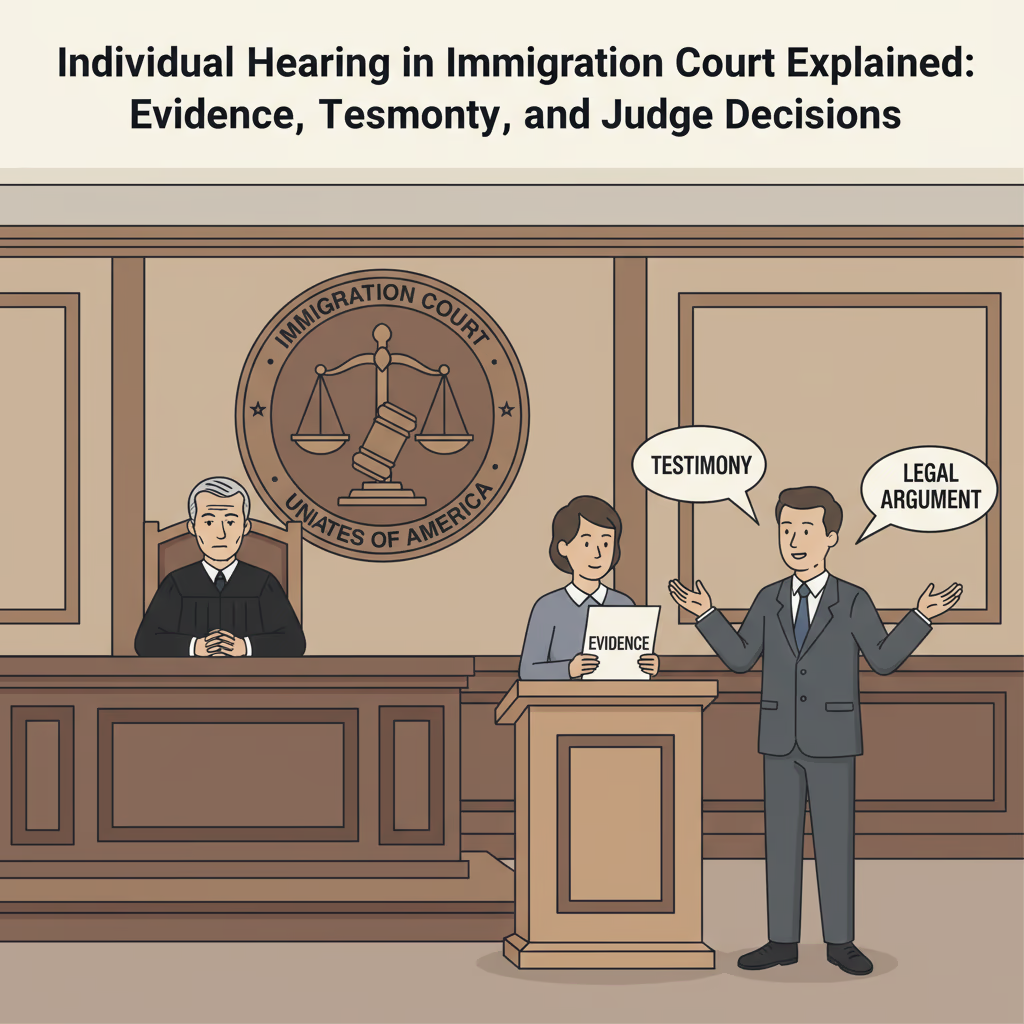Asylum is a humanitarian form of relief that allows eligible individuals to remain in the United States and eventually apply for lawful permanent residency (a green card) and, ultimately, citizenship.
Asylum Definition & Qualification
Asylum in the United States is a form of protection granted to individuals who are already in the country and are unable or unwilling to return to their home country due to a well-founded fear of persecution based on their race, religion, nationality, membership in a particular social group, or political opinion.
A person can qualify for asylum, or political asylum, if he or she has a reasonable fear, of future persecution, on account of race, religion, national origin, political opinion, or membership in a particular social group.
A reasonable fear just means one need not prove conclusively that they will be persecuted in the future; only that they have a good reason to fear that it will happen. Courts have granted asylum in the US to people who have as little as a ten to fifteen percent chance of persecution in the future.
Persecution means that the harm an asylum seeker is afraid of is severe enough to be considered a serious violation of one’s human rights. A loss of money or small restriction on liberty is typically not enough to constitute persecution, while a serious threat to one’s life or liberty is more likely to be considered persecution.
Race, religion, and national origin are fairly straightforward. Political opinion asylum does not necessarily require a political opinion in order to be a protected opinion; an opinion about a nonpolitical issue can sometimes qualify.
An imputed political opinion is sufficient for asylum purposes. A particular social group is a group of people with a common, immutable trait that either cannot be changed or should never be forced to change.
People who commonly fit into this category include:
- Tribal and ethnic groups
- Female victims of domestic violence
- And people who are lesbian, gay, bisexual, or transgender (LGBT)

Reputable Asylum Attorney in Dallas, Texas
If you are looking for a reputable asylum attorney to help you with your asylum case in Dallas, TX, you can trust our team of asylum lawyers at The Piri Law Firm today. Our attorneys have years of experience and will go above and beyond to ensure that you receive the best possible outcome for your case in Immigration Court in Texas.
Take a look at our client testimonials at The Piri Law Firm, and see why we are the most trusted team of asylum attorneys in all of Dallas-FortWorth, TX, and beyond. We speak Spanish and our main office is in the Fort Worth Mercado, easily located to your favorite shopping.
Here are the key points to understand about asylum in the USA:
- Protection from Persecution: Asylum provides protection to individuals who have experienced persecution or have a well-founded fear of persecution in their home country. Persecution can take various forms, such as physical harm, torture, imprisonment, discrimination, or violence.
- Eligibility Criteria: To be eligible for asylum in the USA, an individual must meet certain criteria, including having a credible fear of persecution on account of one of the protected grounds (race, religion, nationality, membership in a particular social group, or political opinion). The fear must be both genuine and well-founded.
- Application Process: To apply for asylum, individuals must submit Form I-589, Application for Asylum and for Withholding of Removal, with the U.S. Citizenship and Immigration Services (USCIS). Asylum applications can be submitted affirmatively (before removal proceedings) or defensively (during removal proceedings).
- Affirmative Asylum: Individuals who are not in removal proceedings can apply affirmatively for asylum with USCIS. If the application is denied, the applicant may be referred to an immigration court for removal proceedings.
- Defensive Asylum: Individuals who are in removal proceedings can request asylum as a defense against deportation. This involves presenting the case before an immigration judge in an immigration court.
- Evidentiary Requirements: Applicants must provide evidence and documentation that supports their claim of persecution or fear of persecution. This can include personal statements, affidavits, country condition reports, medical records, and other relevant documents.
- Credible Fear Interview: Individuals who express a fear of returning to their home country when apprehended at the U.S. border or port of entry may undergo a credible fear interview to determine whether they have a credible fear of persecution. Those found to have a credible fear may have the opportunity to apply for asylum.
- Work Authorization: Asylum applicants may be eligible to apply for work authorization while their asylum application is pending.
- Processing Times: Asylum cases can have varying processing times, and the timeline may depend on factors such as the applicant’s location, the backlog of cases, and the complexity of the case.
- Dependents: Spouses and children of individuals granted asylum may be eligible for derivative asylum status and can apply for asylum themselves.
- Protections: Asylum grantees are protected from being returned to their home country and can live and work in the United States. They may eventually apply for permanent residency and citizenship after meeting certain requirements.
It’s important to note that asylum laws and policies can change, and eligibility requirements may vary. Asylum seekers are advised to seek legal counsel and guidance from experienced immigration attorneys to navigate the asylum process effectively.
What Are Typical Asylum Immigration Cases in Dallas-Fort Worth, TX
Typical asylum cases in the Dallas-Fort Worth area, as in any other part of the United States, involve individuals seeking U.S. protection due to a credible fear of persecution in their home countries. These cases are heard in immigration courts and can be complex and sensitive. Here are some common scenarios that may lead to asylum immigration cases in the Dallas-Fort Worth area:
- Fear of Violence or Persecution: Individuals who have experienced or fear persecution based on their race, religion, nationality, political opinion, or membership in a particular social group in their home country may apply for asylum. For example, people facing threats, violence, or discrimination due to their ethnicity or political beliefs might seek asylum.
- Gender-Based Violence: Women and LGBTQ+ individuals who have experienced severe gender-based violence, such as domestic abuse, human trafficking, or persecution due to their sexual orientation or gender identity, may apply for asylum based on membership in a persecuted social group.
- Religious Persecution: Individuals who are targeted due to their religious beliefs or practices may seek asylum. This could involve cases where individuals face persecution for practicing a minority religion in their home country.
- Political Opinion: People who have been persecuted or fear persecution due to their political opinions or activism in their home country may apply for asylum.
- Ethnic or Tribal Conflict: Individuals who are caught in ethnic or tribal conflicts, or who belong to a particular ethnic group that is targeted, may seek asylum.
- Family-Based Persecution: Cases where family members of asylum seekers have been targeted or harmed due to their relationship with the individual seeking asylum.
- Escaping Gang Violence: Some individuals may seek asylum due to threats from criminal gangs or organized crime groups in their home countries.
- Fleeing Civil Unrest or Humanitarian Crises: Asylum seekers from countries experiencing civil unrest, armed conflicts, or other humanitarian crises might seek protection based on the dangers they face.
It’s important to note that each asylum case is unique, and the specifics of an individual’s circumstances will play a significant role in determining the outcome of their case.
Asylum seekers in the Dallas-Fort Worth area, like elsewhere in the U.S., should consult with experienced immigration attorneys who can help them navigate the complexities of the asylum process and present a strong case for protection.
Please keep in mind that my knowledge is based on information available up until September 2021, and there may have been changes or developments since that time.






